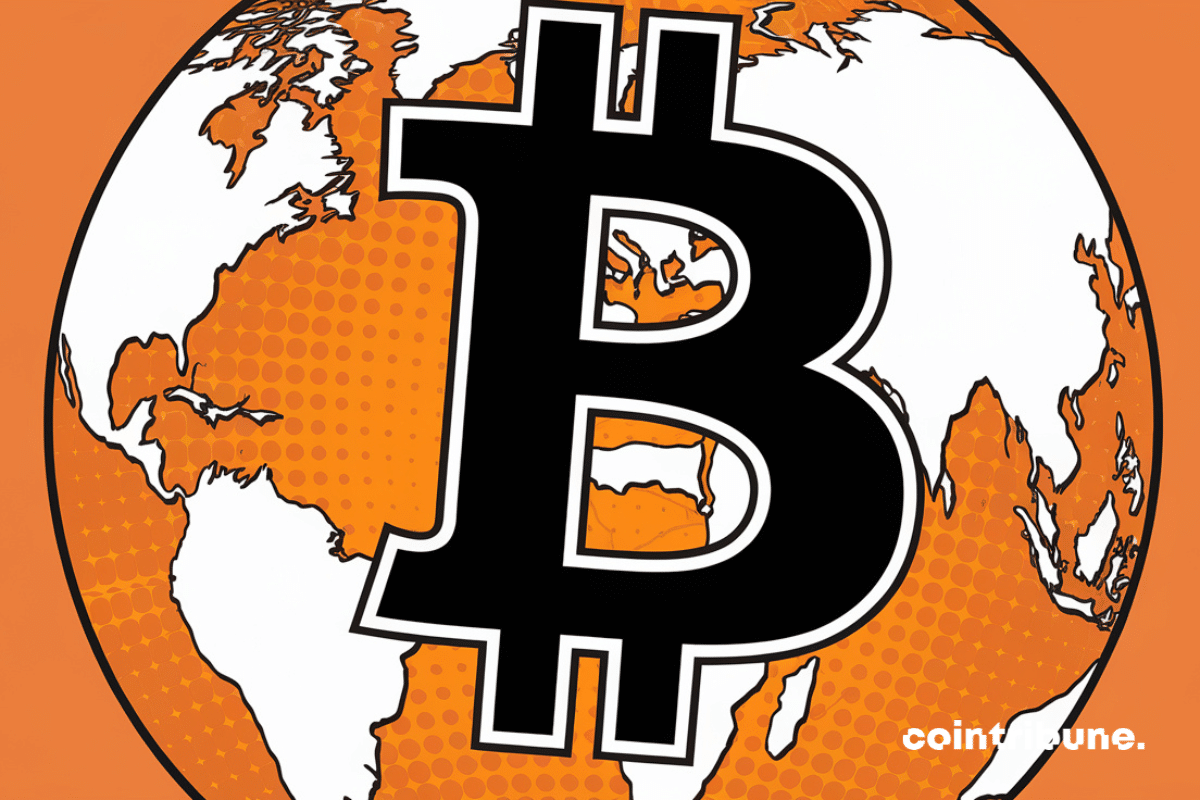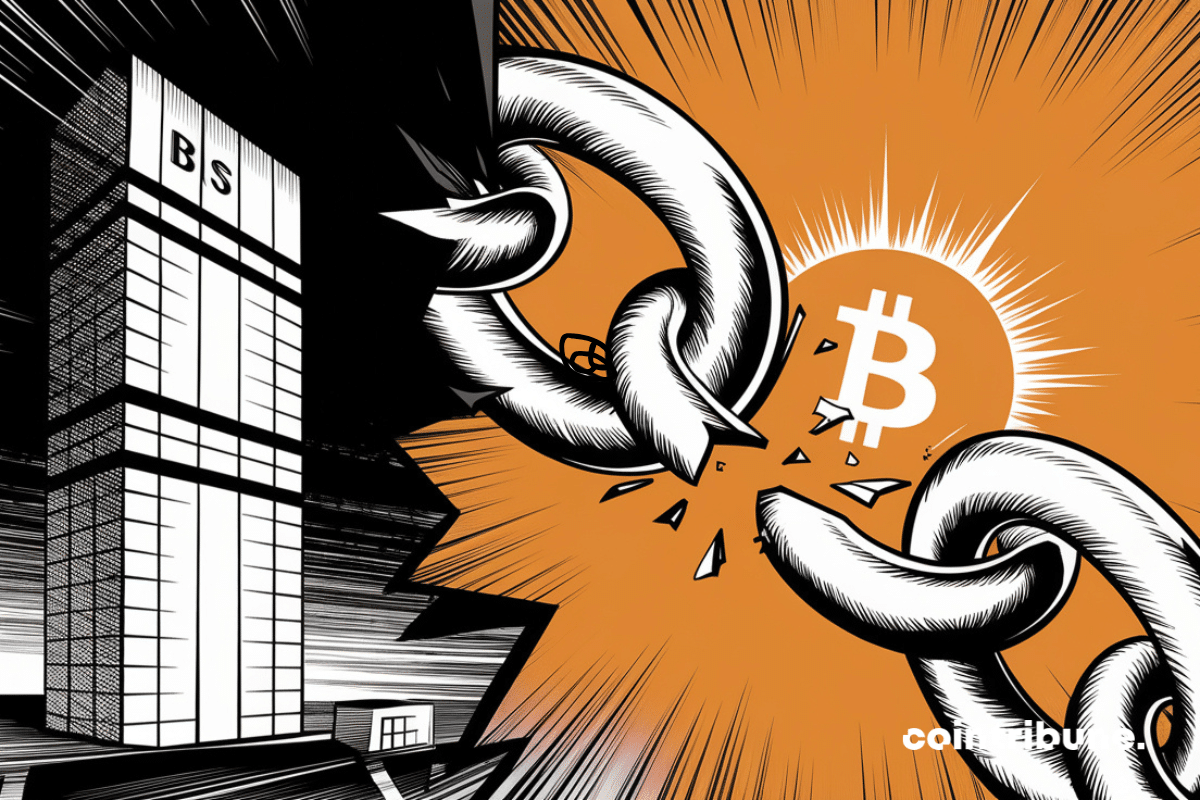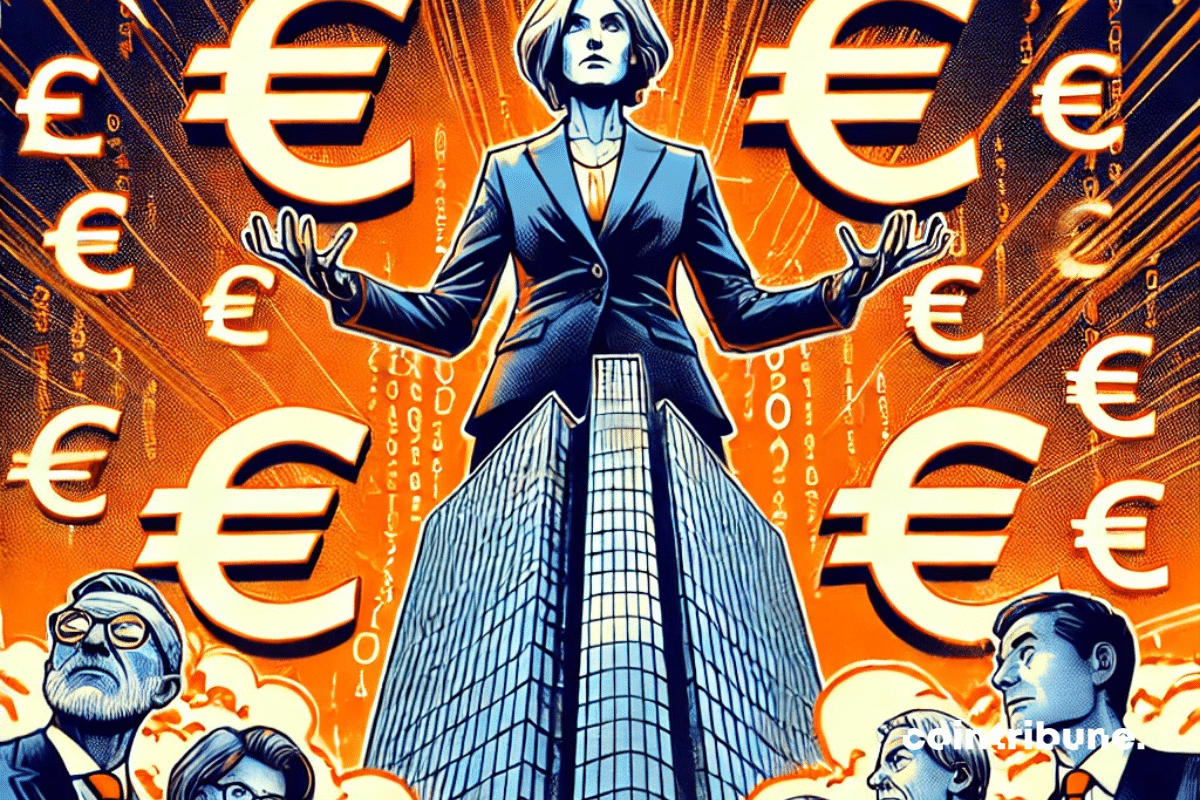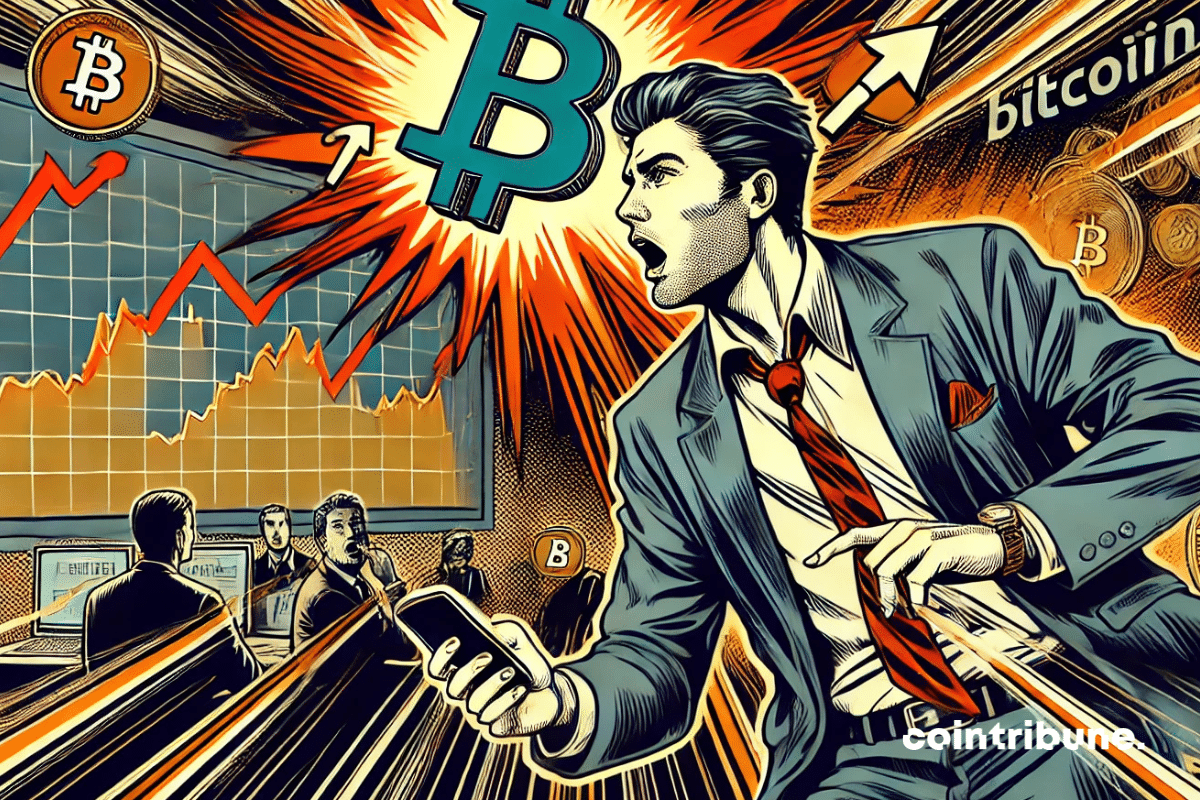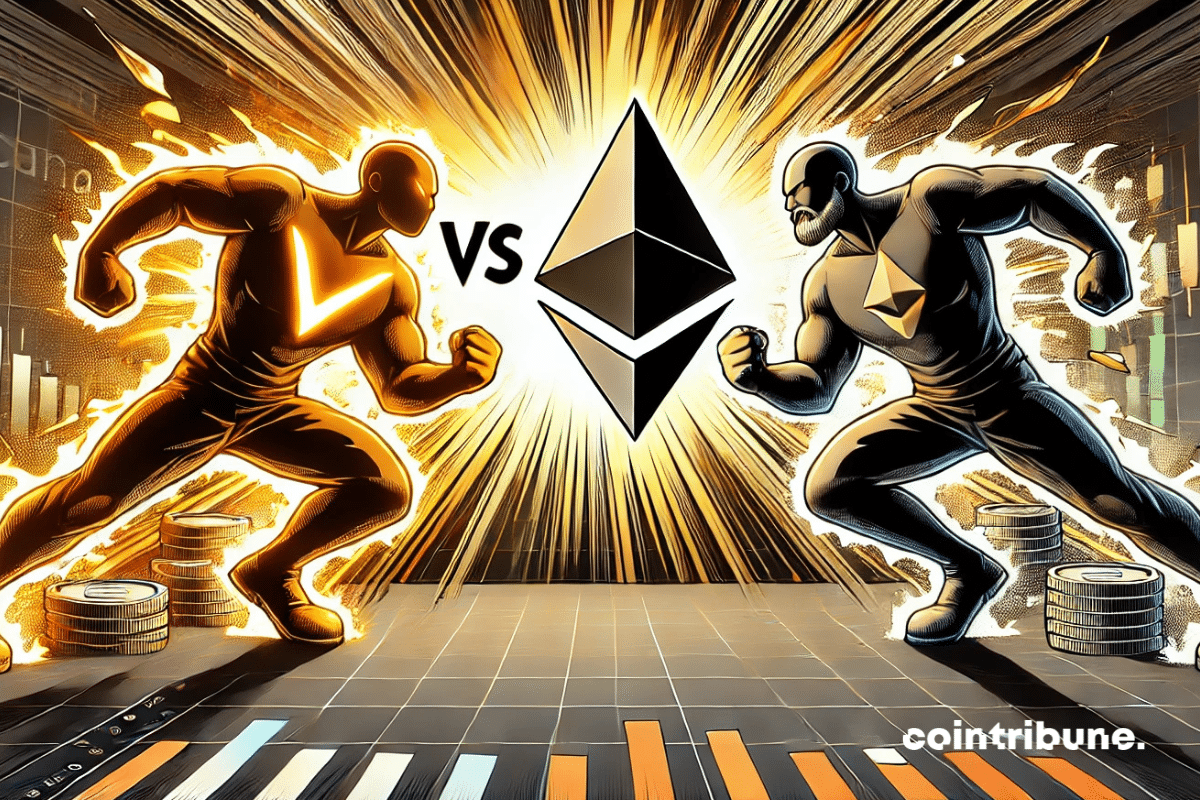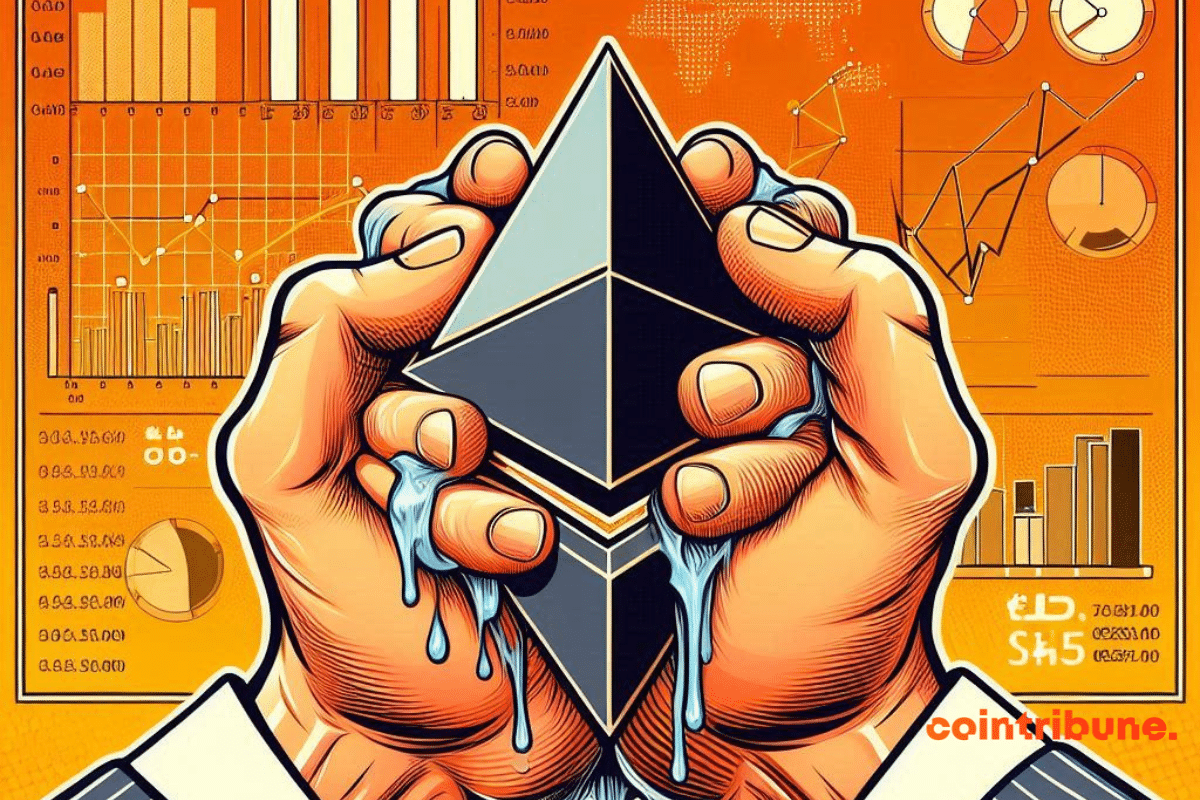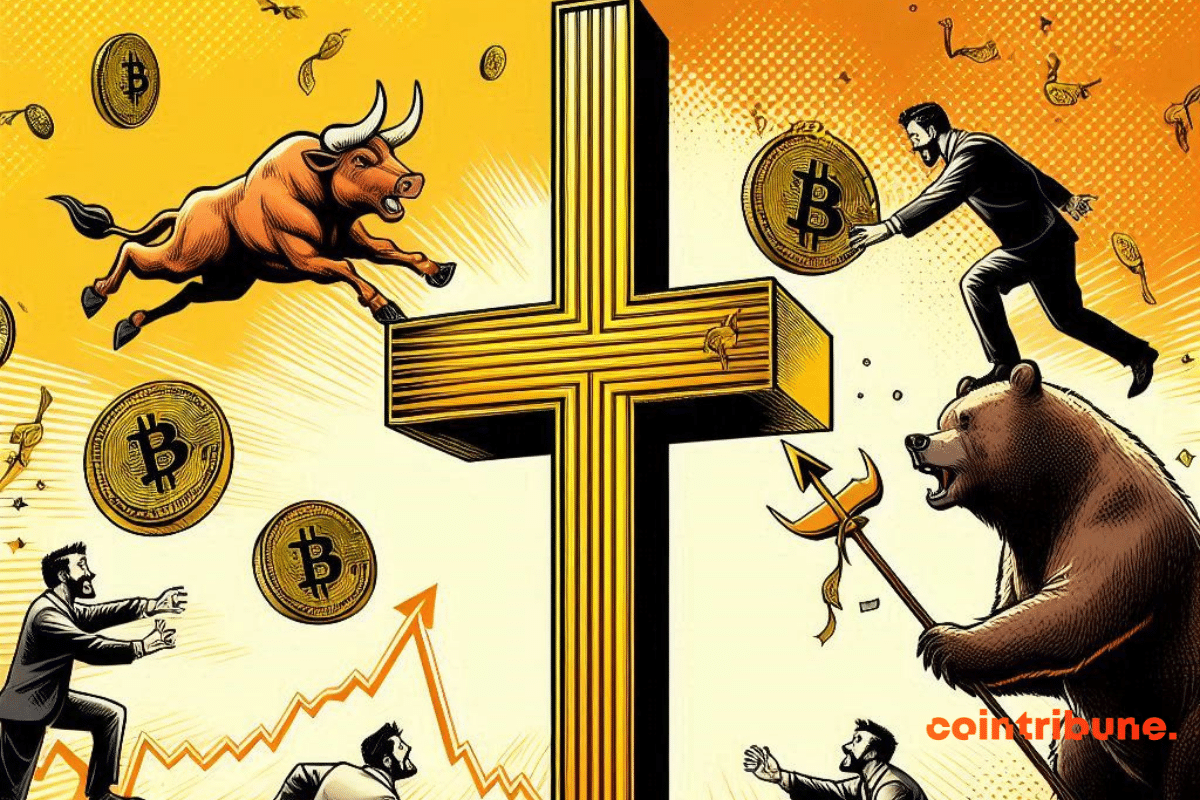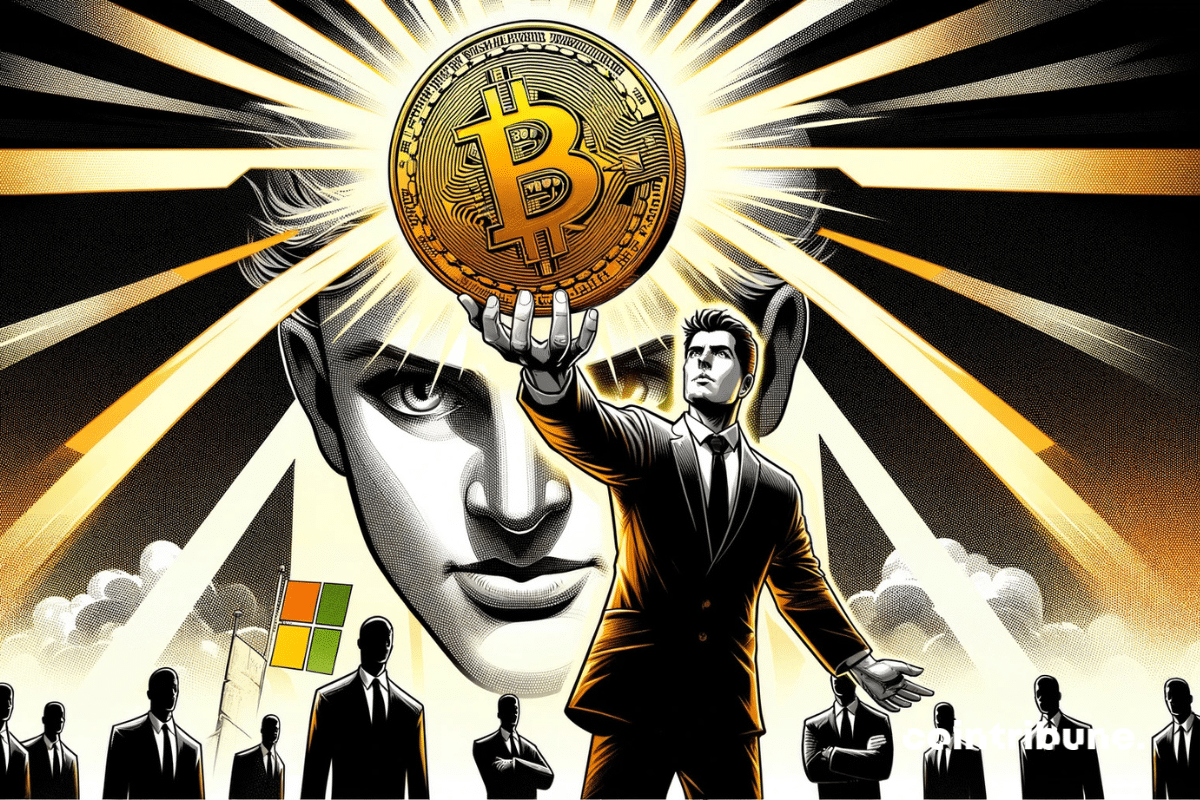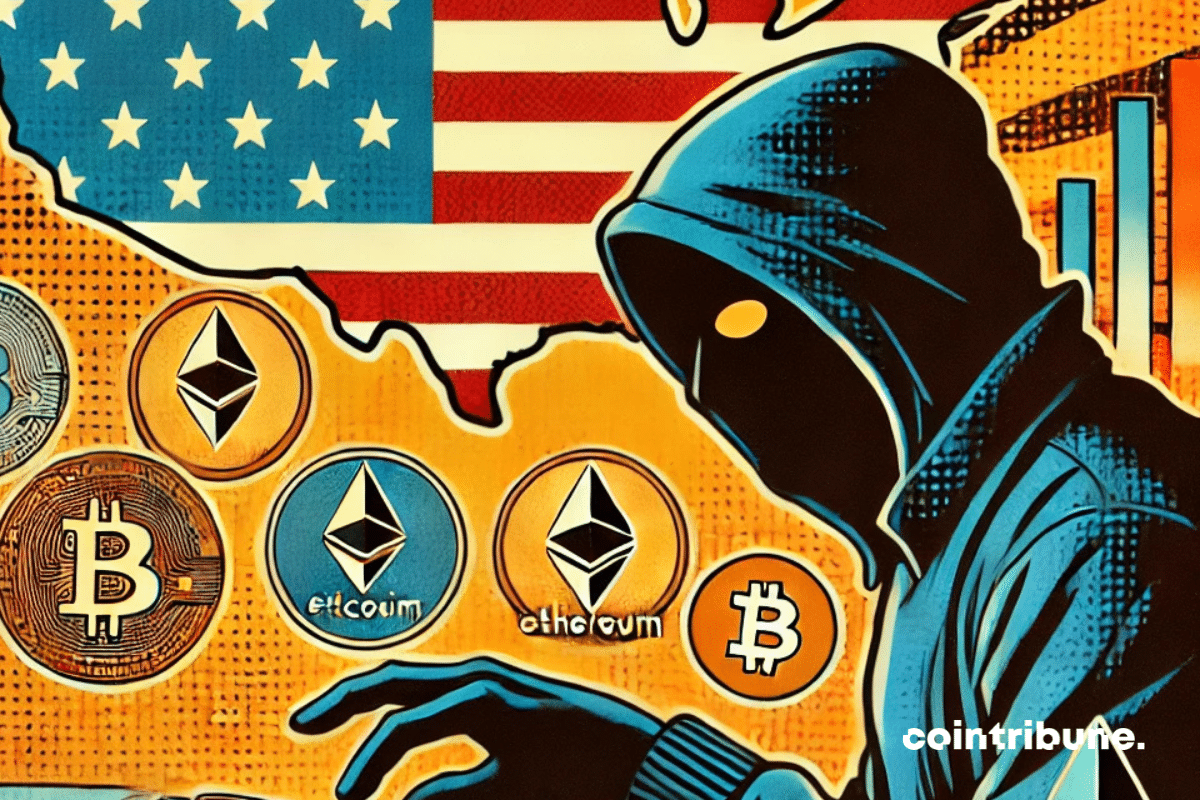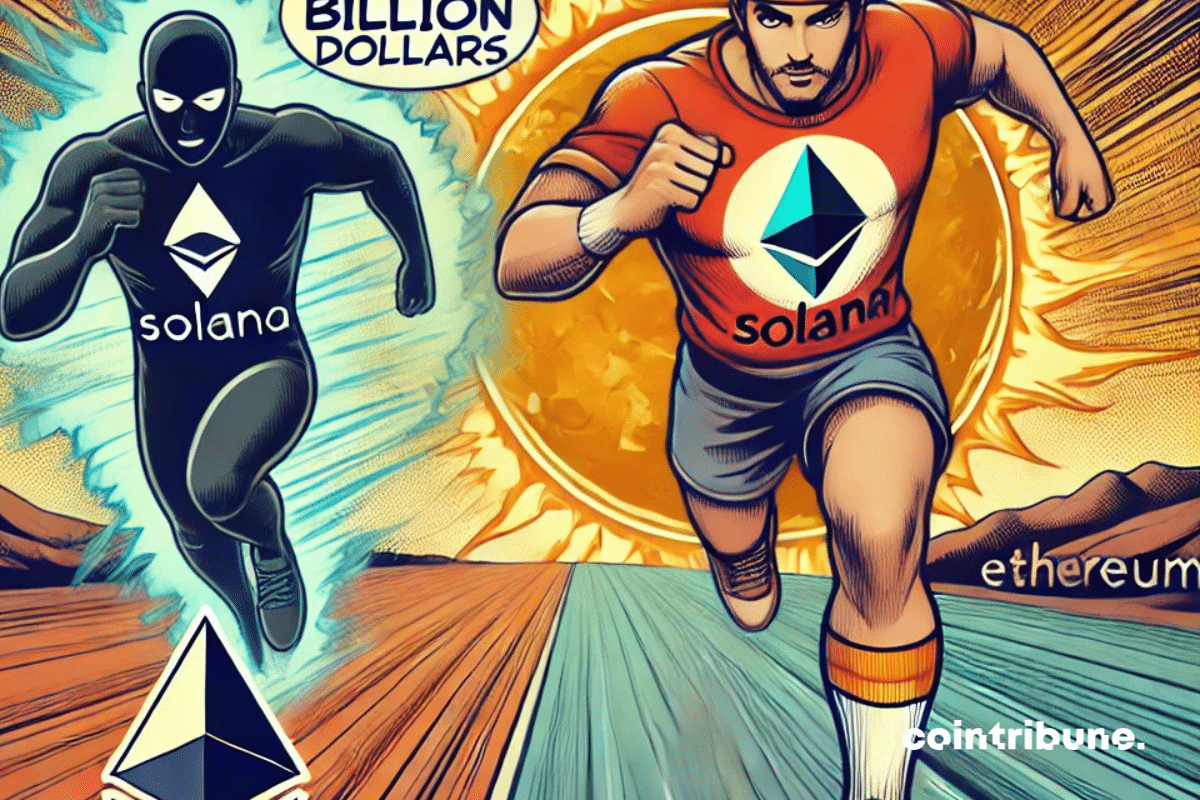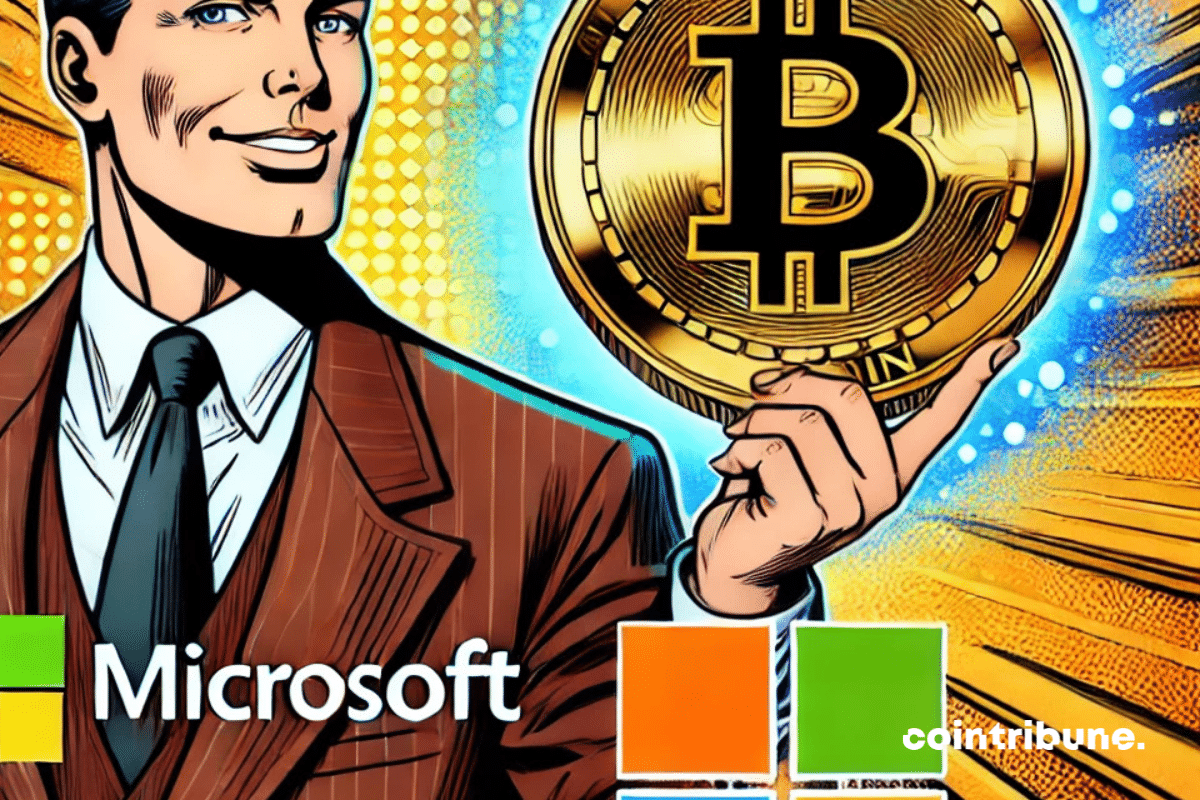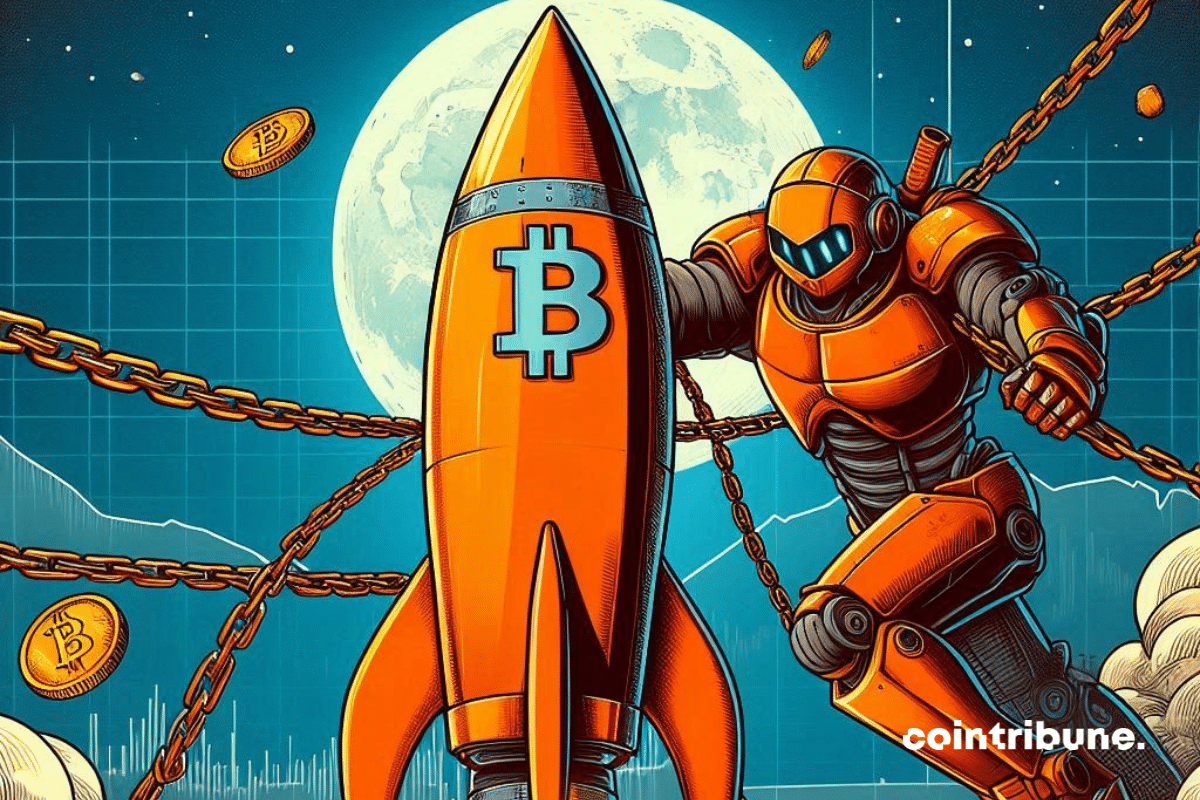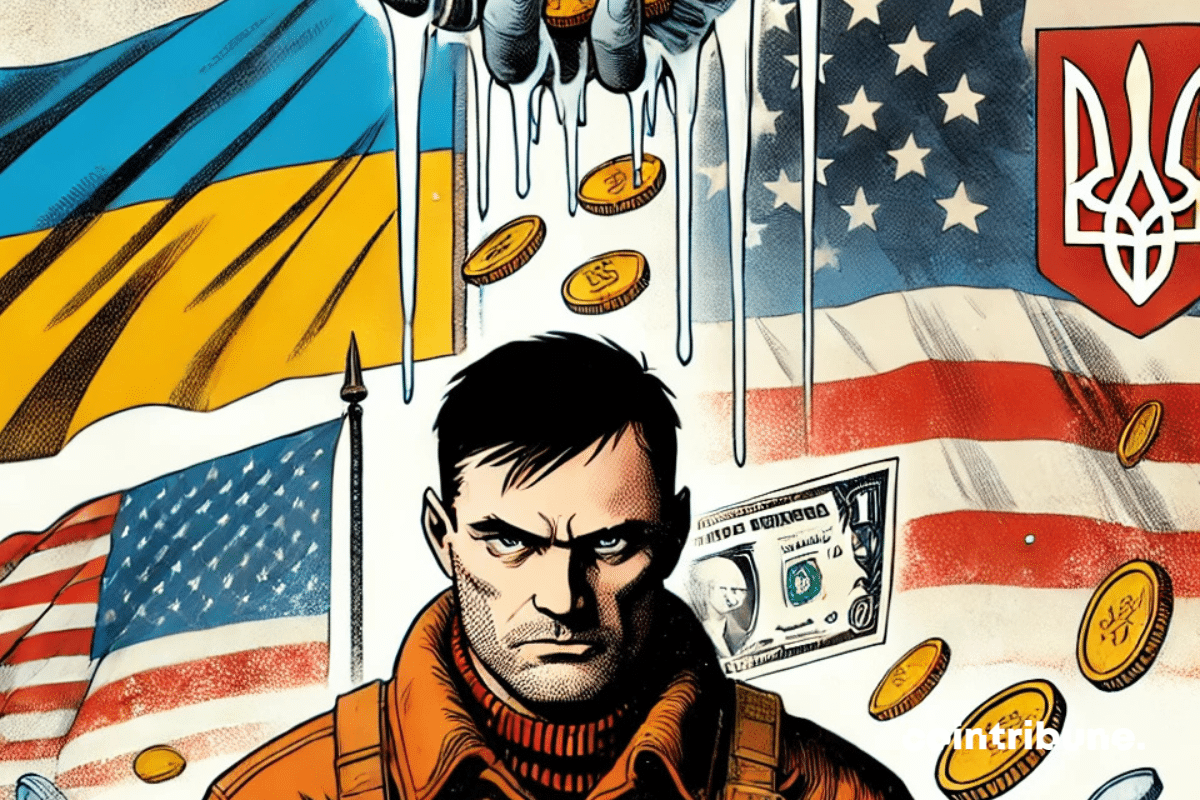Will the BRICS embrace bitcoin? This is at least the thesis of the head of digital asset research at the investment firm VanEck.
Finance News
In a tense stock market context, Ubisoft, the French video game giant, is set to unveil its semi-annual financial results this Wednesday. The company, which has faced headwinds for several months, sees its stock price fluctuate as rumors of a possible acquisition by Tencent intensify.
The international payment blockchain mBridge, overseen by the Bank for International Settlements, seems to be struggling. Good news for Bitcoin.
On Tuesday, October 29, 2024, Brussels approved a drastic increase in customs tariffs on electric vehicles imported from China. Such a measure follows a thorough investigation into the massive subsidies granted by Beijing to its national manufacturers. For Europe, it is a matter of industrial survival. While some applaud a necessary step to protect a struggling automotive market, others fear global economic repercussions.
The introduction of the digital euro is causing a major confrontation between the European Central Bank and the EU member states. At the heart of this battle is the control of a new monetary instrument that could disrupt the balance of financial power in Europe. Nine countries, including France and Germany, are already openly opposing Frankfurt's ambitions.
BNB is generating increasing interest, hinting at imminent expansion. Let’s explore together the future prospects for BNB. Current Status of the BNB Price After reaching an all-time high just below $725, BNB has experienced a decline that brought its price around $403. Since then, the crypto has been undergoing a…
On Tuesday, October 29, 2024, Saudi Arabia took a major strategic step by launching the largest ETF in the Middle East, backed by Chinese stocks listed in Hong Kong. Indeed, this exchange-traded fund, named Albilad CSOP MSCI Hong Kong China Equity ETF, goes beyond a mere financial operation, as it is part of a long-term vision aimed at consolidating the relationships between these two economic powers. In the face of volatility in the Chinese markets and global economic uncertainties, this launch is a clear indicator of Saudi ambitions to diversify their partnerships and increase their influence on the international financial stage.
The burger sees red: McDonald's, hit by E. Coli and boycotts, puts on its stock market life jacket.
Bitcoin has shown spectacular performance in recent weeks, on the eve of the 2024 U.S. presidential elections. Indeed, the price of Bitcoin, which surpassed the $71,000 mark in October, seems to benefit from a particular economic context and increased attention from investors. But is this renewed interest in Bitcoin merely temporary, or does it reveal a deeper trend, particularly related to the imminent American election? According to VanEck, a major player in the investment field, current signals suggest a "very bullish" configuration for Bitcoin, a situation that strangely resembles the 2020 election.
Solana, one of Ethereum's most dynamic challengers, has reached a significant milestone by generating more daily fees than Ethereum this Monday, October 28, 2024. In a context where speed and transaction costs are becoming major selling points to attract users, Solana seems to be making a decisive mark.
Giants are monopolizing ETH with liquid staking! A high-risk adventure for the decentralization of our beloved crypto.
Attention, traders! The golden cross is all well and good, but beware: this signal often shines brighter than it yields.
As the debate over budgetary receipts rages on and tensions mount, a new tax of 40 billion euros could further destabilize France's already fragile economy. In a statement this Sunday, October 27, Pierre Lellouche, former minister, sounded the alarm: "the French economy will suffer a shock that will bring it to a halt at the worst possible moment." This heavy statement comes in a context where economic recovery is more necessary than ever, but where room for maneuver is shrinking day by day.
Many signs are in favor of Bitcoin, particularly the unexpected rise in borrowing rates in the United States.
Amid revolutionary announcements, technological advancements, and regulatory turbulence, the crypto ecosystem continues to prove that it is both a territory of limitless innovations and a battleground of regulatory and economic conflicts. Here is a summary of the most notable news from the past week regarding Bitcoin, Ethereum, Binance, Solana, and Ripple.
On October 21, a sudden move of Bitcoin towards $69,000 reignited investor attention. This rally, which comes after months of stagnation, is not just a technical flare-up but a reflection of deeper underlying dynamics. According to a recent report by Glassnode, one of the leading on-chain analytics firms, this surge is not a matter of chance. The data reveals encouraging trends in terms of capital inflow and institutional positions, suggesting that this rally could have solid foundations.
As the G7 considers tapping into frozen Russian assets to support a massive loan to Ukraine, the Kremlin does not hide its concern. Through warnings from its senior officials, Russia warns of consequences that could weaken the supremacy of the dollar and redefine international monetary balances.
Bitcoin ETFs, these new darlings of the stock market, are causing a frenzy while Ethereum is still lagging behind.
Many cryptocurrencies continue to show remarkable performances despite volatility and significant declines. This is the case for Polygon, whose native token, POL, has reached a historical low of $0.34. Such a price drop, representing a decline of 45.65% since the beginning of the year, further worries investors. However, behind this apparent downturn lies a solid infrastructure, supported by rapidly expanding sectors such as DeFi and gaming.
The army of altcoins is still snoozing, while Bitcoin touches the peaks. Is one jolt enough to wake them up?
Doliprane, the star medication against fever and pain, is making headlines due to its controversial sale to an American investment fund. The affair has sparked an outcry, particularly because of a one-time bonus of 200 million euros paid to its CEO.
In a context where large tech companies are questioning the relevance of integrating Bitcoin into their financial strategies, Microsoft finds itself in the spotlight with a proposal that could change its future. Bitcoin, once reserved for digital pioneers, is now entering the debates of the boards of directors of Silicon Valley giants. Michael Saylor, a staunch supporter of Bitcoin and founder of MicroStrategy, sees in this cryptocurrency the opportunity for Microsoft to generate its next trillion dollars. This bold idea comes at a time when the company's shareholders must decide on the possibility of adding Bitcoin to the company's balance sheet. Between strategic potential and financial risk, the outcome of this vote could be a pivotal moment for one of the largest multinational corporations in the technology sector.
The security of assets managed by governments is increasingly being questioned as attacks on crypto wallets multiply. Indeed, the latest incident involving the loss and recovery of over 19 million dollars in crypto by the US government illustrates once again the risks associated with the use of decentralized technologies. This theft, although unusual in its scale, raises concerns about the safety of public funds in the decentralized finance (DeFi) space, a rapidly growing sector that is still vulnerable.
The election is approaching, the crypto market holds its breath, like a poker player waiting for the card of the century.
Poutine returns to the international stage by hosting 36 leaders at the BRICS summit in Kazan. The imperial currency is still on the agenda.
As the flagship crypto hovers around $67,000, the movements of "whales" are capturing attention. In recent days, on-chain data has revealed a significant increase in the number of these large addresses, reaching an unprecedented level since the bullish market of January 2021. Indeed, this massive accumulation by whales, combined with a strengthening of institutional and retail investors, raises the following question: is Bitcoin on the verge of breaking a new all-time high before the end of 2024?
Since October 23, 2024, the Solana network has captured the attention of the crypto ecosystem with record figures and an unprecedented wave of economic activity on the blockchain. While traditional competitors like Ethereum struggle to maintain their position, Solana is increasingly establishing itself as an essential player in decentralized finance (DeFi).
Microsoft, a global tech giant, is considering the possibility of investing in Bitcoin. This proposal, which will be put to a vote at the upcoming shareholders' meeting in December 2024, has caught the attention of the entire financial sphere and the crypto markets. If approved, the Redmond giant would become one of the largest institutional investors in crypto, joining players like Tesla and MicroStrategy. However, behind this announcement lies a complex strategy that the board of directors does not seem to fully embrace.
Between the shining gold and the sluggish BTC, traders are on the lookout for any flaw for a new crypto takeoff.
On Wednesday, October 23, 2024, Washington announced a contribution of 20 billion dollars in favor of Ukraine, a decision with significant consequences that hinges on the use of frozen Russian assets. Indeed, this measure is part of a broad G7 program aimed at supporting the Ukrainian war effort and maintaining economic pressure on Moscow. As the year 2025 approaches, the negotiations surrounding these frozen funds reveal the complex stakes of a conflict that is redefining international alliances and financial priorities.
